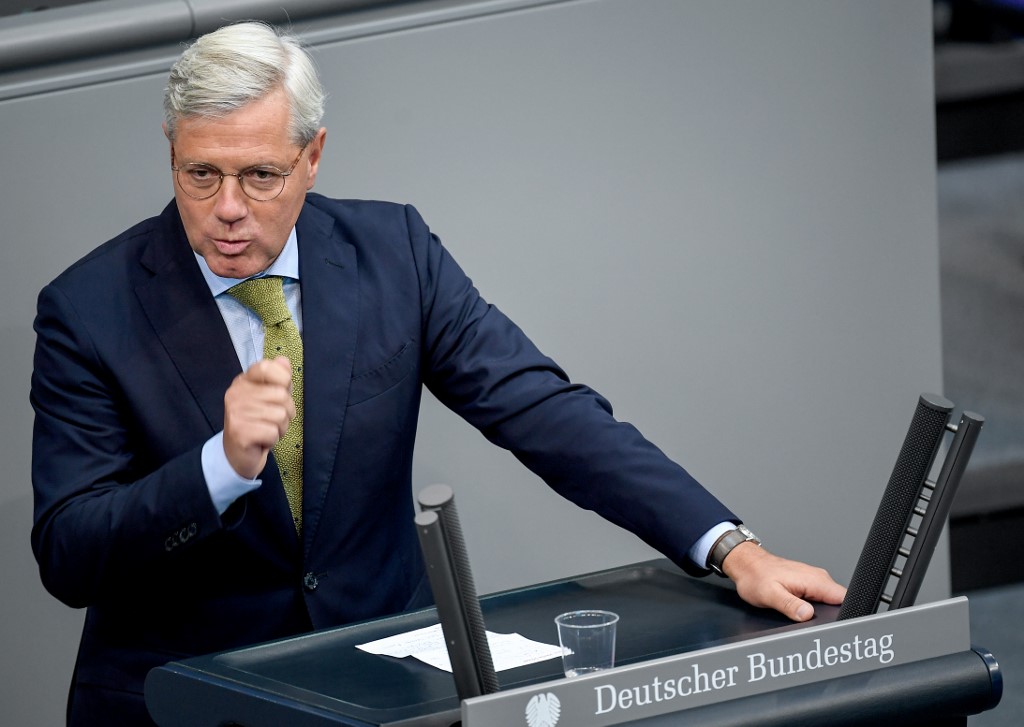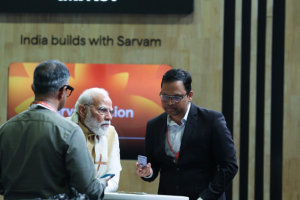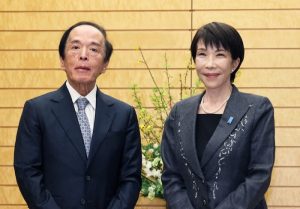(ATF) China’s growing sphere of influence has rattled the global community as it moves to impose a security law on Hong Kong that critics say will destroy the city’s autonomy. This has led the United States and Britain putting the issue before the UN Security Council.
“China is taking advantage of global chaos to solidify its sphere of influence – beginning with Hong Kong,” said Matt Gertken, Geopolitical Strategist at macro research firm BCA Research.
“Beijing’s action comes after Hong Kong’s widespread civil unrest last year and ahead of the city’s Legislative Council elections in September, which will likely become a major geopolitical flashpoint.”
The US, Britain, Canada and Australia led criticism of the planned law, which would punish secession, subversion of state power, terrorism and acts that endanger national security, as well as allow Chinese security agencies to operate openly in Hong Kong.
China’s rubber-stamp parliament on Thursday approved plans for the law, which followed seven months of huge and sometimes violent pro-democracy protests in Hong Kong last year.
After China fended off initial American efforts this week to have the controversy put on the agenda of the United Nations Security Council, the US and Britain succeeded in securing an informal discussion about it for Friday, diplomatic sources said.
Beijing’s proposed security law “lies in direct conflict” with China’s international obligations to guarantee certain freedoms in Hong Kong, the two countries said in a joint statement issued with Canada and Australia on Thursday.
“The proposed law would undermine the One Country, Two Systems framework,” they added, referring to Hong Kong’s special status within China under the terms of its handover from Britain in 1997.
United response in Britain
British Foreign Secretary Dominic Raab also said the UK would widen its rules around the rights of British National (Overseas) passport holders – a status offered to many Hong Kongers at the time of handover – if China went ahead with the new law.
There was unanimity across the political spectrum in Britain.
“Labour welcomes the Government’s announcement that steps will now be taken to give British Nationals Overseas (BNOs) passport holders greater visa rights to come to the UK,” said Lisa Nandy, Labour’s Shadow Foreign Secretary, responding to the extension of visa rights for British nationals overseas in Hong Kong.
The Chinese parliament’s vote came just hours after Washington revoked the special status conferred on Hong Kong, paving the way for the territory to be stripped of trading and economic privileges.
US Secretary of State Mike Pompeo said the status had been withdrawn because China was no longer honouring its handover agreement with Britain to allow Hong Kong a high level of autonomy.
US President Donald Trump also announced he would hold a press conference on Friday about China, with Hong Kong and a series of other flashpoint issues – including the coronavirus, espionage and trade – almost certain to be brought up.
“Following the comments by Mike Pompeo earlier this week, it is possible that President Trump will use the occasion to announce some sanctions, which as we noted previously, will likely not include tariffs at this time, but could target individuals and impose visa requirements for travel to the US,” Robert Carnell, ING Bank’s Regional Head of Research for Asia-Pacific, said.
Chinese listings may move to Hong Kong
US regulators have already tightened rules to make it difficult for Chinese companies to list at the Nasdaq exchange and under a legislation passed by the Us Senate earlier this month, Chinese companies could be forced to give up their listings on American stock exchanges.
The legislation, which came in the wake of the Luckin Coffee scandal, requires the SEC to prohibit trading in any shares where the company’s auditor hasn’t faced a PCAOB inspection for three consecutive years.
“Chinese companies listed in America will in due course be listed in Hong Kong. If the trigger for this move is the passage of a bill in Congress to make Chinese companies submit to American accounting standards, the irony is that President Xi will have no problem with this Washington-driven agenda,” Jefferies’ Global Head of Equity Strategy Christopher Wood said.
“For Xi has made it quite clear that he would prefer it if these major Chinese corporates were listed closer to home.”
He said that the result of such an outcome would be that Hong Kong as a financial centre will become ever more China-centric and China-focused, but with the closed capital account remaining in place the city will continue to play a critical role as the conduit to the outside world via its highly successful stock and bond connects.
‘Safe environment’
China has remained defiant in the face of Western criticism on Hong Kong, insisting that “foreign forces” are to blame for fuelling the pro-democracy movement and creating turmoil in the city of 7.5 million people.
Li Zhanshu – chairman of the NPC Standing Committee which will now draft the law – said on Thursday the move was “in line with the fundamental interests of all Chinese people, including Hong Kong compatriots”.
Under the “One country, two systems” model agreed before the city’s return from Britain to China, Hong Kong is supposed to be guaranteed certain liberties until 2047 that are denied to those on the mainland.
The mini-constitution that has governed Hong Kong’s affairs since the handover obliges the territory’s authorities to enact national security laws. But huge protests blocked an effort to do so in 2003, and Hong Kong’s government then shelved it while watching the pro-democracy movement grow.
China’s state-run media on Friday said the law was in the interests of protecting peace and autonomy in Hong Kong.
“For (Hong Kong residents), safeguarding national security is a must, rather than a choice,” the official news agency Xinhua in a commentary.
Communist Party mouthpiece the People’s Daily said in an editorial that law would only target “a small minority of people who are suspected of committing crimes that endanger national security.”
But rather than diminishing the rights of Hong Kong residents, including freedom of speech, the law will “further safeguard those legal rights and freedoms in a safe environment,” the paper said.
In Hong Kong, the pro-democracy movement voiced opposite sentiments.
“It’s the end of Hong Kong,” pro-democracy lawmaker Claudia Mo said.
“They are cutting off our souls, taking away the values which we’ve always embraced, values like human rights, democracy, rule of law.”
























